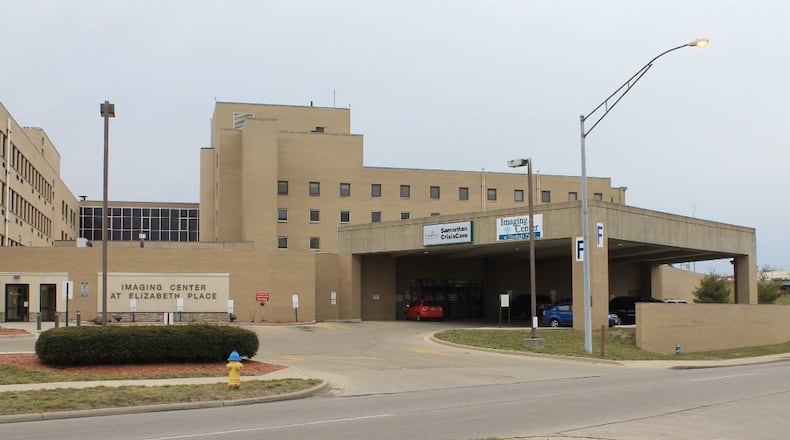It will take more data to know whether COVID-19 had an impact on the overall suicide rate, according to the American Psychological Association. But with the apparent “perfect storm” of risk factors for suicide and mental distress, health experts talked with the Dayton Daily News about ways people can look out for themselves and others during this time.
Even before the stress of the pandemic, the Dayton Daily News had previously reported on signs of growing mental health needs in the region, from the rising suicide rate to the growing demand for pediatric mental health care.
From 2007 to 2018, Ohio Department of Health reported annual suicide deaths increased 44.8%, from 1,268 to 1,836.
Helen Jones-Kelley, executive director of Montgomery County Alcohol, Drug & Mental Health Services, said there’s been an increase in local attempted and completed suicides for several years, though some of that occurred during the height of the opioid crisis when it was sometimes hard to tell what was an intentional or unintentional overdose.
“So we’ve had a problem for a while in certainly both of the areas but we’ve seen an increase since the pandemic has started and it’s really frightening,” Jones-Kelley said.
Jones-Kelley said she’s concerned about the people in the community who have lived through more than one tragedy in the last 12-15 months in the region. She worries now about the additional layers of stress, such as noting a hair stylist she knows who had been waiting for months to get her first unemployment check.
“That takes a toll when you have to worry from day to day on how you are going to keep a roof over your head and get diapers. It’s not surprising that we’re seeing this sense of hopelessness,” Jones-Kelley said.
Jones-Kelley said it can be hard to ask love ones questions about whether they need help or have thought about suicide but it’s better to ask questions and often people want someone to help them.
“Often they really want somebody to help them. They’d rather have somebody demonstrate concern or caring rather than to ignore it,” she said.
Jones-Kelley said they’ve seen a particular increase in white men dying by suicide with a firearm.
Giving away belongings, having a plan or means such as acquiring a firearm, isolating, and using substances more frequently can all be signs of suicide.
“We need the community to be aware of that, to pay attention to that, and to ask questions,” she said.
Gentile said with the pandemic it is normal to feel more stress.
“In general, I think that most individuals in our community are much more resilient than we think,” Gentile said. “I think we have to realize that stress is a normal reaction to the current crisis, and that routines, and social connections, and our coping strategies can help ease that stress. It is the individuals that can’t mitigate or resolve the symptoms, that are really struggling with mental health conditions, that I would encourage to seek out treatment.”
Common experiences like anxiety and depression are treatable and she said people experiencing prolonged or severe symptoms should seek an evaluation. Treatment options include medications and psychotherapy, both of which are proven to be effective, she said.
“Individuals typically seek treatment for conditions such as diabetes and high blood pressure; they should do the same for depression and anxiety,” she said.
People in a mental health crisis may be avoiding hospitals or clinics out of fear of contracting COVID-19, said Gentile. This follows trends seen with other types of medical care, of volumes dropping and people avoiding care they might have otherwise sought.
The isolation and the avoidance of preventive and ongoing mental health treatment may increase mental health symptoms such as depression and anxiety, and there also may be increased of thoughts of self harm or even suicide, according to Gentile.
Options are available for care, including over the phone or via video chat in many situations, with emergency rules relaxing previous restrictions and making remote care more available.
There are many ways people can be helpful to others. People can practice active listening, and can ask what they can specifically do to help and make sure they follow through on any commitments made.
“A good active listener gives your complete attention to the person who’s talking and asks open ended questions to get more detail about how they’re functioning at this time,” Gentile said.
In an emergency call 911.
Gentile said targeted outreach is needed, particularly to people who are vulnerable such as those with a pre-existing psychiatric diagnosis, COVID-19 survivors, older adults, and children in situations with a lack of consistency or structure, in particular while schools are closed and children don’t have access to the resources linked to the educational systems.
“I think another piece is to encourage someone to access resources ... I wouldn’t hesitate to encourage people to seek out a provider,” Gentile said.
Mental health resources
COVID-19 CareLine: Are you struggling with stress as a result of the COVID-19 pandemic and need emotional support? Call the Ohio Department of Mental Health and Addiction Services’ COVID CareLine toll-free at 1-800-720-9616 to speak with a licensed mental health professional and get the help you need.
Samaritan Behavioral Health Crisis Care: Available any time, any day, by calling Samaritan Behavioral Health at 937-224-4646.
National Suicide Prevention Lifeline: Available 24 hours at 1-800-273-8255
About the Author
